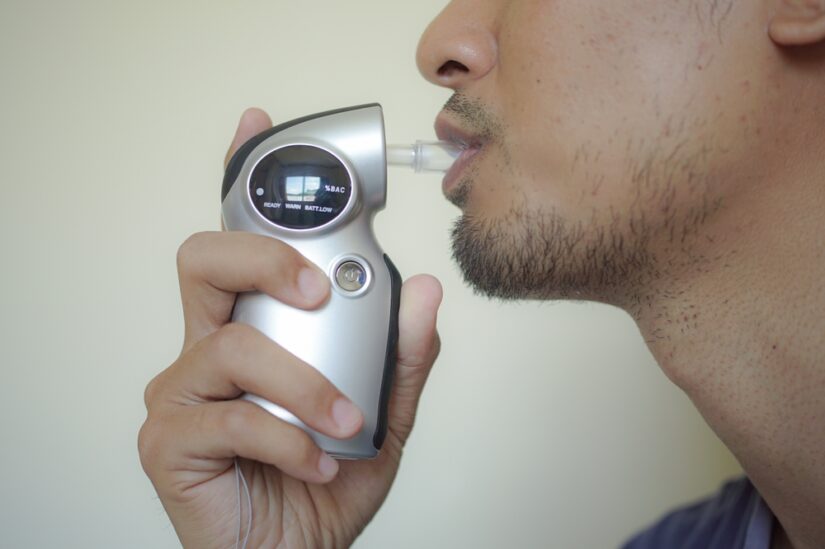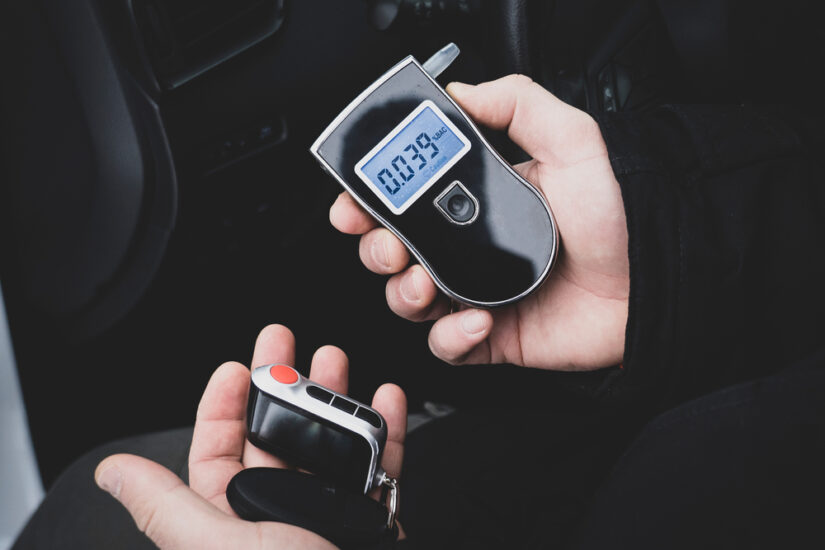
November 19, 2025
When someone is pulled over in Texas for suspected drunk driving, the officer usually asks them to take a breath test. At that moment, a handheld device called the Breathalyzer may seem simple enough. You blow into a tube, and within seconds, a number appears: your blood alcohol concentration (BAC). But that number can be the deciding factor between an officer’s warning and an arrest, or even between freedom and jail time.
The question is, how accurate are breathalyzers in Texas? Despite how law enforcement relies on them, these devices are far from perfect. From calibration errors to medical conditions that can skew results, breath tests can easily produce numbers that do not reflect a driver’s actual level of intoxication.
At the Napier Law Firm, our Texas DWI attorney can challenge breathalyzer reliability and mount a strong defense if you are facing DWI charges.
How a Breathalyzer Actually Works
To understand breathalyzer accuracy, it helps to know how the device measures alcohol. A Breathalyzer does not test your blood directly; instead, it estimates your BAC by analyzing alcohol molecules in your breath. The device assumes a specific ratio called the partition ratio between alcohol in your breath and alcohol in your blood.
In Texas, the law generally uses a ratio of 2,100:1, meaning the device assumes that 2,100 milliliters of breath contain the same amount of alcohol as 1 milliliter of blood. The problem? Not everyone’s body follows that exact ratio. Some people naturally have higher or lower ratios due to body temperature, metabolism, and lung capacity. That means your reading might not reflect what’s actually in your bloodstream.
How Accurate Are Breathalyzers?
It’s easy to believe that a digital device used by police officers must be scientifically foolproof. However, breathalyzer reliability depends on a host of factors that are beyond the driver’s control. Common problems include:
- Calibration errors: Breathalyzers must be calibrated regularly to stay accurate. Even small deviations can create large measurement errors.
- Improper maintenance: Devices that are not maintained or replaced on schedule can malfunction and produce faulty readings.
- User error: An officer’s failure to follow testing procedures precisely (such as waiting for the required observation period before the test) can completely invalidate results.
- Environmental factors: Radio interference, temperature fluctuations, or residual substances in the mouth (like breath spray or mouthwash) can alter readings.
When any of these issues occur, the results can be misleading, making someone appear more intoxicated than they truly are.
Breathalyzer vs. Blood Test Accuracy
When comparing breathalyzer vs. blood test accuracy, there is no question that blood testing is more precise. Blood tests directly measure alcohol concentration in the bloodstream, while a Breathalyzer relies on estimation.
However, blood tests are not perfect either. If the blood sample is improperly stored or contaminated, it can ferment and produce false positives. Yet, between the two, blood testing generally offers stronger scientific credibility in court.
That said, law enforcement officers tend to use breath tests more frequently because they are faster, cheaper, and less invasive. But from a defense perspective, that convenience often comes at the expense of accuracy.
Medical Conditions and False Positives
A number of perfectly legal health conditions can cause false Breathalyzer results. It is important to know what besides alcohol can set off a breathalyzer. For example:
- Diabetes: High levels of acetone in the breath (common among diabetics) can be misread as ethyl alcohol.
- Acid reflux or GERD: If stomach acid enters the esophagus or mouth, it can carry alcohol from earlier consumption, inflating the reading.
- Low-carb diets: These can produce ketones, which some devices mistakenly identify as alcohol.
Even something as minor as burping, hiccupping, or vomiting within 20 minutes of a test can contaminate the breath sample. This is why officers are required to observe the suspect continuously before administering the test. But that rule is not always followed.
The Role of Calibration and Maintenance Records
Every Breathalyzer device used in Texas must meet strict calibration standards, typically verified by a certified technician. The machine must also undergo regular inspections, and those maintenance logs can become critical pieces of evidence in a DWI case.
If a defense attorney finds that a machine’s maintenance records are missing or inconsistent, the test results can be challenged. Even a single lapse, like skipping a scheduled calibration, can cast doubt on the entire test.
Human Factors and Officer Training
Another variable that affects breathalyzer accuracy is the officer’s level of training. Proper administration requires:
- Waiting a minimum observation period (typically 15 minutes) before testing.
- Ensuring the suspect has not eaten, smoked, or used mouthwash during that time.
- Following the exact device instructions, including multiple test samples for confirmation.
In practice, mistakes are common. Officers who are inexperienced, rushed, or unaware of procedural nuances can unintentionally compromise the validity of the results.
Mouth Alcohol and Residual Contamination
Breathalyzers are designed to test deep-lung air, not alcohol lingering in the mouth. However, mouth alcohol can contaminate the sample and create inflated BAC readings. This can happen if someone uses mouthwash, cough syrup, or certain dental products that contain alcohol shortly before the test.
Moreover, anyone who has recently taken a sip of alcohol (even if it was minutes before driving) could have unabsorbed alcohol still present in their mouth, resulting in an inaccurate spike on the device.
Time and the Body’s Metabolism
Another aspect that complicates breathalyzer reliability is the timing of the test. Alcohol absorption varies depending on when and what a person last ate, their weight, and how fast their body metabolizes alcohol.
If a person is tested shortly after drinking, their BAC might still be rising, giving a reading higher than what it would be at the actual time of driving. Conversely, if the test occurs long after the stop, the BAC might have already decreased, but the prosecution could still use that number against them. This is why defense attorneys sometimes bring in toxicologists to perform retrograde extrapolation.
How DWI Defense Attorneys Challenge Breathalyzer Results
A skilled Texas DWI attorney knows how to dissect every element of the test process and find inconsistencies. Some common tactics include:
- Requesting calibration and maintenance records.
- Demanding video evidence of the observation period.
- Investigating whether environmental or medical factors could have affected the result.
- Cross-examining the officer about their training and certification.
- Presenting expert testimony to explain how equipment errors or physiological factors can produce false positives.
The goal is not to deny that alcohol was consumed but to question whether the test accurately measured intoxication at the relevant time.

Our Texas DWI Attorney Will Strongly Defend You
At Napier Law Firm, we understand the science and strategy behind DWI defense. Led by George Napier, a respected trial lawyer with extensive courtroom experience, our firm has earned a reputation for being direct and aggressive in every case we take.
George Napier has been recognized by Super Lawyers (2020 to present), National Trial Lawyers (2019 to present), and named a Rising Star (2020 to present) for his exceptional work in criminal defense. He also holds a Martindale-Hubbell Preeminent Rating (2019 to present), a Justia 10.0 Rating, and a Google 5-Star Rating. In addition, he is a four-time recipient of the Award for Excellence in Trial, reflecting his relentless commitment to justice and client advocacy.If your DWI case hinges on a questionable breath test, do not assume the evidence is ironclad. Reach out to us today. We will review your case, challenge unreliable evidence, and fight to protect your license, reputation, and freedom. To schedule your free consultation, call us 24/7 at (713) 470-4097 or contact us online.